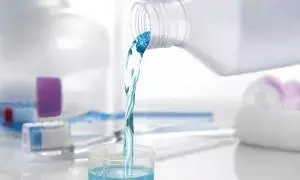- Home
- Medical news & Guidelines
- Anesthesiology
- Cardiology and CTVS
- Critical Care
- Dentistry
- Dermatology
- Diabetes and Endocrinology
- ENT
- Gastroenterology
- Medicine
- Nephrology
- Neurology
- Obstretics-Gynaecology
- Oncology
- Ophthalmology
- Orthopaedics
- Pediatrics-Neonatology
- Psychiatry
- Pulmonology
- Radiology
- Surgery
- Urology
- Laboratory Medicine
- Diet
- Nursing
- Paramedical
- Physiotherapy
- Health news
- Fact Check
- Bone Health Fact Check
- Brain Health Fact Check
- Cancer Related Fact Check
- Child Care Fact Check
- Dental and oral health fact check
- Diabetes and metabolic health fact check
- Diet and Nutrition Fact Check
- Eye and ENT Care Fact Check
- Fitness fact check
- Gut health fact check
- Heart health fact check
- Kidney health fact check
- Medical education fact check
- Men's health fact check
- Respiratory fact check
- Skin and hair care fact check
- Vaccine and Immunization fact check
- Women's health fact check
- AYUSH
- State News
- Andaman and Nicobar Islands
- Andhra Pradesh
- Arunachal Pradesh
- Assam
- Bihar
- Chandigarh
- Chattisgarh
- Dadra and Nagar Haveli
- Daman and Diu
- Delhi
- Goa
- Gujarat
- Haryana
- Himachal Pradesh
- Jammu & Kashmir
- Jharkhand
- Karnataka
- Kerala
- Ladakh
- Lakshadweep
- Madhya Pradesh
- Maharashtra
- Manipur
- Meghalaya
- Mizoram
- Nagaland
- Odisha
- Puducherry
- Punjab
- Rajasthan
- Sikkim
- Tamil Nadu
- Telangana
- Tripura
- Uttar Pradesh
- Uttrakhand
- West Bengal
- Medical Education
- Industry
Cetylpyridinium chloride mouthwash use decreases salivary viral titer of COVID-19 compared to placebo: Study

Cetylpyridinium chloride mouthwash use decreases salivary viral titer of COVID-19 compared to placebo suggests a study published in the Journal of Evidence-Based Dental Practice.
The established effect of cetylpyridinium chloride (CPC) mouthwash on SARS-CoV-2 viral titers is unclear. No clinical trial has examined the impact of on-demand aqueous chlorine dioxide mouthwash on SARS-CoV-2 viral titer. In this multicenter, 3-armed, randomized, open-label, placebo-controlled clinical trial involving mildly symptomatic COVID-19 patients, we randomly assigned them to receive 20 mL of 0.05% CPC, 10 mL of 0.01% on-demand aqueous chlorine dioxide, or 20 mL of purified water as a placebo mouthwash in a 1:1:1 ratio. The primary measurement was the SARS-CoV-2 viral titer in saliva, evaluated by a mixed-effects linear regression model.
Results: 49 patients received CPC mouthwash (n=16), on-demand aqueous chlorine dioxide mouthwash (n=16), and placebo (n=17) between January 14, 2024, and February 20, 2024. 0.05% CPC mouthwash significantly reduced salivary viral titer at 10 minutes postuse (-0.97 log10 PFU/mL; 95% CI, -1.64 to -0.30; P = .004), while no such effect was observed at 30 minutes (difference vs placebo, -0.26 log10 PFU/mL; 95% CI, -0.92 to 0.40; P = .435) or 60 minutes (difference vs. placebo, -0.05 log10 PFU/mL; 95% CI, -0.68 to 0.58; P = .877). 0.01% on-demand chlorine dioxide mouthwash did not reduce salivary viral titer at 10 minutes, 30 minutes, or 60 minutes compared to placebo. 10 minutes after using a 0.05% CPC mouthwash, the salivary viral titer of SARS-CoV-2 decreased compared to placebo. 0.01% on-demand aqueous chlorine dioxide mouthwash and placebo had no significant difference in SARS-CoV-2 viral titers.
Reference:
Onozuka D, Takatera S, Matsuo H, Yoshida H, Hamaguchi S, Yamamoto S, Sada RM, Suzuki K, Konishi K, Kutsuna S. Oral mouthwashes for asymptomatic to mildly symptomatic adults with COVID-19 and salivary viral load: a randomized, placebo-controlled, open-label clinical trial. BMC Oral Health. 2024 Apr 25;24(1):491. doi: 10.1186/s12903-024-04246-1. PMID: 38664718; PMCID: PMC11044332.
Dr. Shravani Dali has completed her BDS from Pravara institute of medical sciences, loni. Following which she extensively worked in the healthcare sector for 2+ years. She has been actively involved in writing blogs in field of health and wellness. Currently she is pursuing her Masters of public health-health administration from Tata institute of social sciences. She can be contacted at editorial@medicaldialogues.in.
Dr Kamal Kant Kohli-MBBS, DTCD- a chest specialist with more than 30 years of practice and a flair for writing clinical articles, Dr Kamal Kant Kohli joined Medical Dialogues as a Chief Editor of Medical News. Besides writing articles, as an editor, he proofreads and verifies all the medical content published on Medical Dialogues including those coming from journals, studies,medical conferences,guidelines etc. Email: drkohli@medicaldialogues.in. Contact no. 011-43720751


